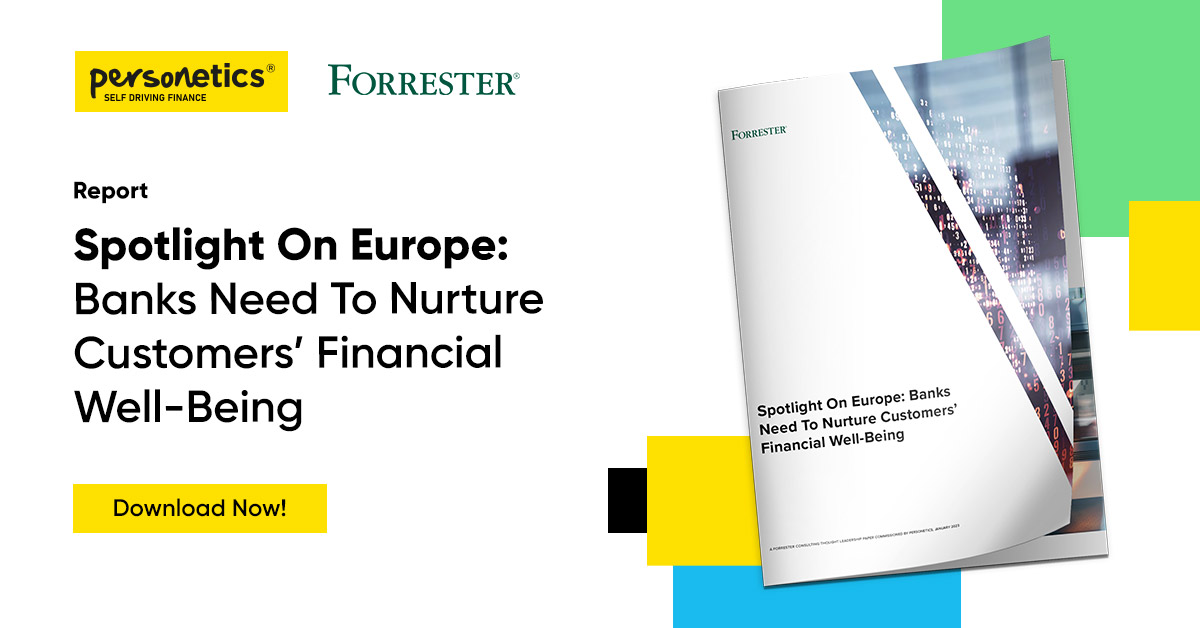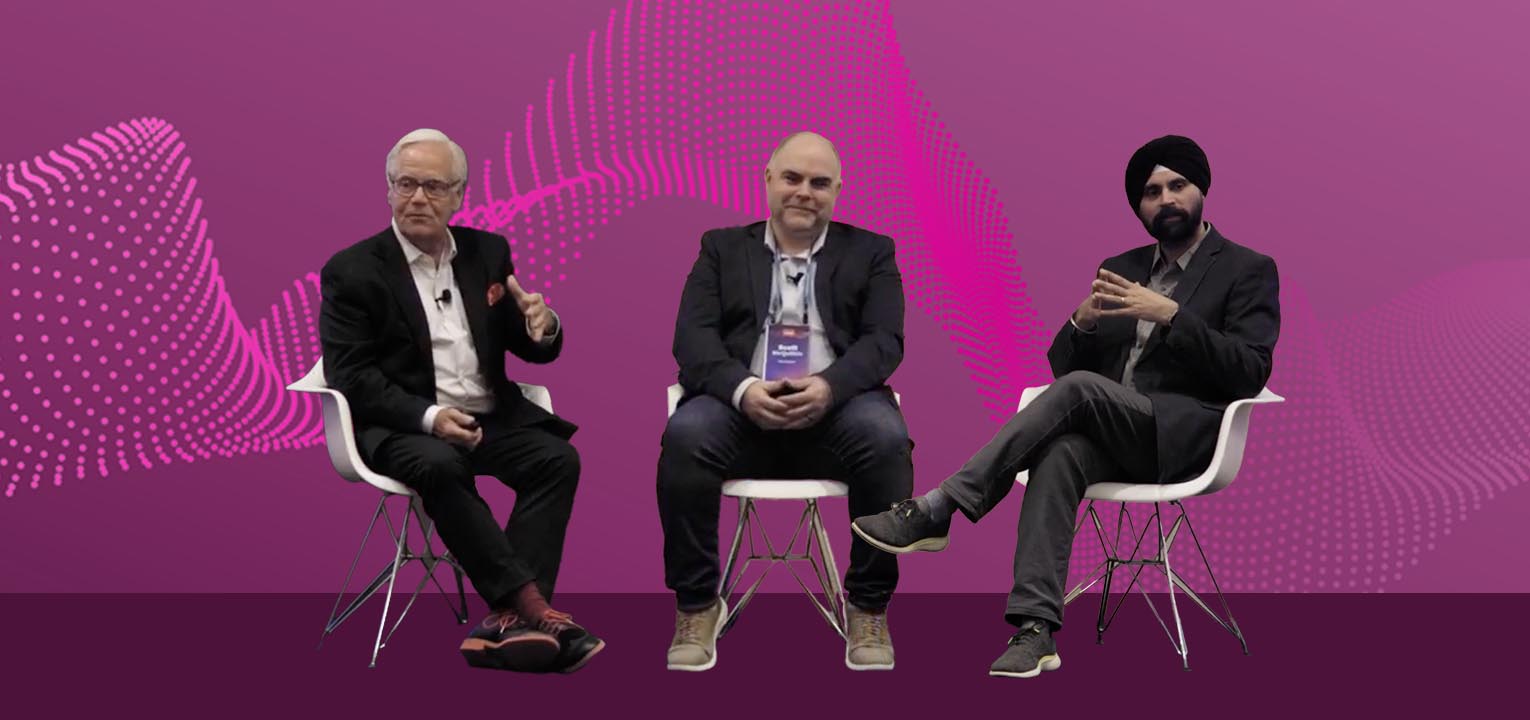February 1, 2023
European Banks Say That Traditional Money Management Tools Are Not Meeting Expectations

New report reveals: Fewer than 50% of banks’ customers are engaging with traditional PFM and money management tools
Personetics, the global leader in financial data-driven customer engagement for financial services today released a report titled Spotlight On Europe: Banks Need To Nurture Customers’ Financial Well-Being. The report, based on a study conducted by Forrester Consulting on behalf of Personetics, details the opportunities and challenges associated with leveraging money management tools to enhance customer engagement and increase lifetime value.
“Now more than ever, customers demand greater control of their finances and expect their banks to deliver real-time, financial data-driven personalised advice and long-term planning,” said Dorel Blitz, VP of Strategy & Business Development at Personetics. “Yet Forrester’s report reveals that existing Personal Financial Management (PFM) tools are neither meeting customer expectations nor delivering business impact for banks. The banks that will thrive are those which will take advantage of the opportunity to provide advanced and proven money management capabilities.”
Forrester based its conclusions on responses from key banking decision-makers. The report shows that while most banks offer basic PFM and money management capabilities there is a growing, urgent need for both banks and their customers to “evolve their approach in order to successfully raise customers’ levels of financial well-being.”
For example, the European survey revealed disappointingly low levels of customer adoption and engagement with digital money management tools. Although nearly three-quarters (73%) of bankers say they already offers customers some sort of digital money management tool, 77% state that fewer than half of their customers actively use these tools.
The report found that adoption is low because existing money management tools fail to deliver tangible outcomes for customers. Today’s money management tools follow a one-size-fits-all approach, meaning they put too much onus on the end user and fail to help customers achieve their financial goals.
Mr. Blitz added: “The good news is that banks are alive to the issues they face. Now it’s a matter of finding the right path forward, through proactive, hyper-personalised solutions at scale that can make a difference today.”
Below are the core findings across Europe.
Banks have high expectations for money management solutions
When asked about the benefits of implementing digital technologies for this purpose, the top three benefits were increased customer engagement (47%), increased revenue through upsell and cross-sell (43%) and new customer acquisition (43%).
Traditional PFM fails to deliver effective customer outcomes
One of the main challenges in deploying these digital capabilities is the absence of an enterprise-wide approach to enhancing customer outcomes. Just over half of banks say they can provide sufficient personalised financial insights and advice based on customers’ financial data. This leaves a significant number of banks without the means to deliver competitive and appealing offers and products for their customers.
A major opportunity exists for innovative banks
Banks should use an advanced money management platform to deliver business impact, increase revenue, profitability, and customer lifetime value. To do this, financial institutions need to partner with the right vendor and invest in advanced capabilities, adopt a financial data-driven approach, and deliver solutions that customers need when they need them.
Want to explore how your bank can harness the power of AI to engage and serve customers? Request a demo now
Latest Posts

The AI Implementation Reality Check

Why Asia Pacific Pacific Banks Must Lean into Cognitive Banking: A Conversation with Dr. Dennis Khoo

Explore our Spring Release Highlights – From Integrated Marketing Offers, to Custom Trackers, and AI Innovation









